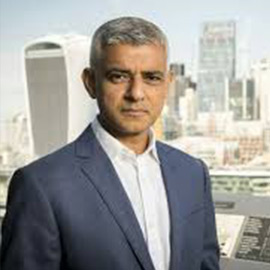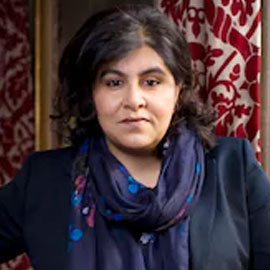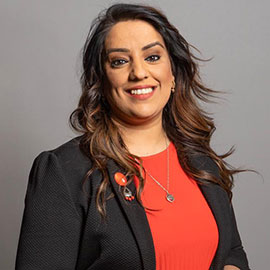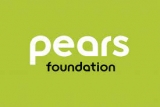MWNUK Statement on Call for Sex-Selective Abortion Amendment
|
Download PDF
23 February 2015 MWNUK Statement on Call for Sex-Selective Abortion Amendment About MWNUK Muslim Women's Network UK (MWNUK) is a national charity aimed at promoting equality, diversity and the empowerment of women. Although we hope to remove barriers and issues faced by Muslim women and assist with their social inclusion, our work is broad-ranging and encompasses all irrespective of gender, faith, sect, ethnicity, disability and sexual orientation. MWNUK operates within a framework of equality, equity and justice and strongly advocate for the rights of women including from an Islamic feminist and international human rights perspective. In turn, we are firmly of the belief that all women should fully exercise control over every aspect of their life, including their reproductive rights. A woman should not be forced to give birth, nor should a woman be forced to abort if either is against her wish. Indeed, we believe women have a right to their own autonomy both Islamically as well as from a human rights perspective. Recently we were approached to express our support for an amendment to the Serious Crime Bill which would criminalise sex-selection. Sex-Selective Abortions as gender discrimination History is witness of practices where the girl child has been buried alive once born as a result of her gender; we are aware that this practice continues in some countries abroad. Medical advances have led to the evolvement of this practice, with women forced to abort a foetus once its gender becomes known. Please note that this occurs against the woman’s wishes, an affront to her autonomy; She wants to have a girl but this choice is taken away from her. Although it is not known to what extent the same is taking place in the UK, we are aware of the pressures faced by Muslim and ethnic minority women to give birth to a boy. Despite advancement in science and education, it is unfortunate that this patriarchal desire for a son remains prevalent across societies and countries, and further that women feel the negative effects of this misogyny. They are beaten, abused, harassed and forced to abort. We consider such sex-selective abortions as a part of violence against women, occurring worldwide due to patriarchy and misogyny, and to be condemned. It is for this reason that we have expressed support for the criminalisation of sex-selective abortion, which we feel is separate to the pro-life versus pro-choice debate which has resulted. We are both in favour of women exercising control over their autonomy and reproductive rights, and simultaneously against sex selective abortion. Both positions, we submit, is an attack on patriarchy, gender discrimination, and violence against women and girls. Our concerns with wording of current proposal We do however note and share the concerns raised in respect of the specific wording of the proposed legislative amendment. The current wording of the bill raises ambiguity rather than clarity as to its application and consequences; that is, who it applies to, when it would apply and how it would be applied. We are also concerned by the possibility of criminalising women, rather than the true perpetrators who promote, encourage and coerce sex-selective abortion. We believe that the legislative problems are in part due to the fact that the Offences Against the Persons Act 1861 continues to consider the procurement of abortions criminal unless authorised by the Abortion Act 1967 and perhaps it is time to address this point. Thus, whilst we agree with the criminalisation of sex-selective abortion in principle, we do hold reservations to the Bill in respect of its wording and application and hope our concerns are addressed. In this regard, MWNUK hopes to be able to assist in achieving our vision of criminalising sex selective abortion whilst at the same time ensuring that unfair restrictions are not placed on the rights of women. We urge our members and women in Britain to contact us with their experiences so that we may be able to address the issues and put forward appropriate solutions. Protection of victims of abuse We have expressed our reservations to the current wording as mentioned within the proposed Bill. We are aware however that many have an issue with the introduction of criminalisation of sex-selective abortion irrespective of whether matters in respect of legislative wording is resolved. Our work at MWNUK includes dealing with victims of violence against women including forced marriage, sexual exploitation and domestic violence. We are fully aware of the circumstances in which victims find themselves and want to ensure that the relevant support mechanisms are in place to ensure their safety and wellbeing. We have mentioned situations where women would be forced to abort a foetus contrary to their own wishes. We have also kept in mind a situation where the victim of, for example, a forced marriage may be seeking an abortion due to pressure from the family; however, she may also not want to continue her pregnancy by virtue of the fact that she is in an unwanted marriage and looking for a means of escape. In other words, her own personal reasons for wanting an abortion would not be due to the gender of the foetus. We also appreciate concerns that some abusers may accuse women of sex selection as a means to control them. This phenomenon is not new; in many of our cases we have heard victims being accused of violence, of mental health instabilities etc. and are aware that abusers will take any measures to achieve their unjust and abusive aims. For such reasons, we wholeheartedly agree that criminalisation of sex selective abortion without proper training, awareness and safeguards in place will do more harm than good; a multi-agency approach is required to ensure protection. In recent months many organisations including MWNUK have discussed at length the need for social workers, teachers and members of medical profession to remain alert to issues such as FGM, forced marriage, domestic abuse and sexual exploitation. Earlier this month the UK government announced the introduction of mandatory reporting of FGM where known cases become known. The medical profession is being asked to take a much more proactive and pragmatic approach in order to assist victims; would an assessment of whether sex-selective abortion is to take place be any different? It is also likely that cases of sex-selective abortion come with their own warning signs; although it can be established earlier generally determination of sex/gender would take place around 16 to 20 weeks. If a woman, or indeed couple, are happy with the pregnancy until the sex/gender of the child becomes known, with no indication of any other factors being involved, and wish to terminate at such a late (albeit within the legal time limit) would this not naturally raise concerns? We also understand concerns in respect of racial profiling and share the same; however, we also believe that with proper training, education and awareness such concerns can be readily combatted. Sex-selective abortion as a need The current legislation tasks doctors with the responsibility to establish whether the abortion sought is in line with the requirements of the Abortion Act 1967. We suggest that, conscientious objections aside, women have been quite readily able to obtain an abortion on under Section 1(1)(a) of the said Act with “injury to the physical and mental health of the pregnant woman or any existing children of her family” being generally interpreted widely. In this regard therefore, perhaps we can all hold some reassurance that doctors are more likely than not to allow an abortion to take place, especially in respect of concerns of driving abortions underground. We are also aware that on a number of occasions, abortion cases will be referred to the likes of British Pregnancy Advisory Service and Marie Stopes who provide these services; we are confident that such organisations are more than capable of properly the assessing the situation and would not deny an abortion where there is a need for the same. Indeed it appears due consideration has not been provided to an alternative situation whereby sex selective abortion continues to take place due to a lack of training, awareness and resources available. We appreciate that each individual case comes with its own layers and circumstances. There may be a situation where a victim of violence feels unable to have a son given her experiences of abuse by male perpetrators. Some may seek sex-selective abortions due to medical reasons, in the case of genital disorders. Moreover, in many situations sex-selection may only formulate a small part of an overall picture and abortion should be allowed irrespective of whether sex-selection is involved or not. In turn, it is likely that it is only in a small number of cases that a matter would be solely and entirely related to sex selection. However, to confirm that sex selective abortion is prohibited would provide a strong message and confirm the UK government’s commitment to ending gender discrimination and violence against women and girls. We note the comments expressed that FGM was criminalised and to date there has been no successful prosecution; we feel however that it is sometimes necessary to at least make your stand clear. Final comments You will note that throughout this statement we have used the term foetus rather than child. This has been done intentionally to make clear that the rights of women are our ultimate concern. In our commitment to the empowerment of women, we want to ensure that they are able to exercise their rights at all times and in all situations. We have expressed our concerns in respect of the wording and subsequent legal effects of the current proposal. However, we maintain our support for the criminalisation of sex-selective abortions whether now or in the future. MWNUK would like to express its willingness to assist in providing guidance and assistance with legislative and policy decisions, training, awareness raising and collecting research and evidence in this regard. We would also like to highlight that whilst much debate and discussion has been had in respect of sex-selection, and rightly so, we do not see the same attention when discussing violence against women and girls more broadly, nor even when considering the abortions linked to disability or financial issues which we consider to also curtail a woman’s choice. To advocate for the rights of women without attempting to stop gender discrimination and violence against women and girls is a bitter irony that we hope everyone can address consistently and collectively. Signed on behalf of: MWNUK Board Notes to editors 1. About MWNUK The Muslim Women’s Network UK is the only national Muslim women’s organisation in Britain. It is an independent network of women across the UK that shares knowledge, connects the voices, and promotes the needs of diverse Muslim women. Further information on the network can be found at: www.mwnuk.co.uk 2. Media spokespeople from Muslim Women’s Network UK are: Faeeza Vaid, MWNUK Executive Director (07535 703567 / faeeza@mwnuk.co.uk ) Shaista Gohir MBE, MWNUK Chair (07802 225989 / contact@shaistagohir.com) |
|















